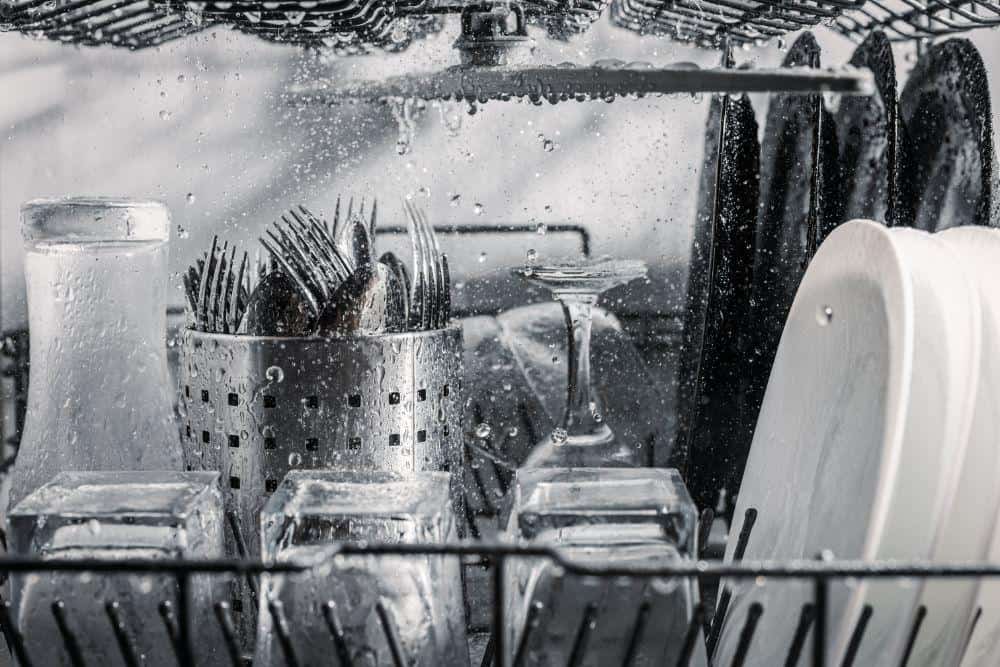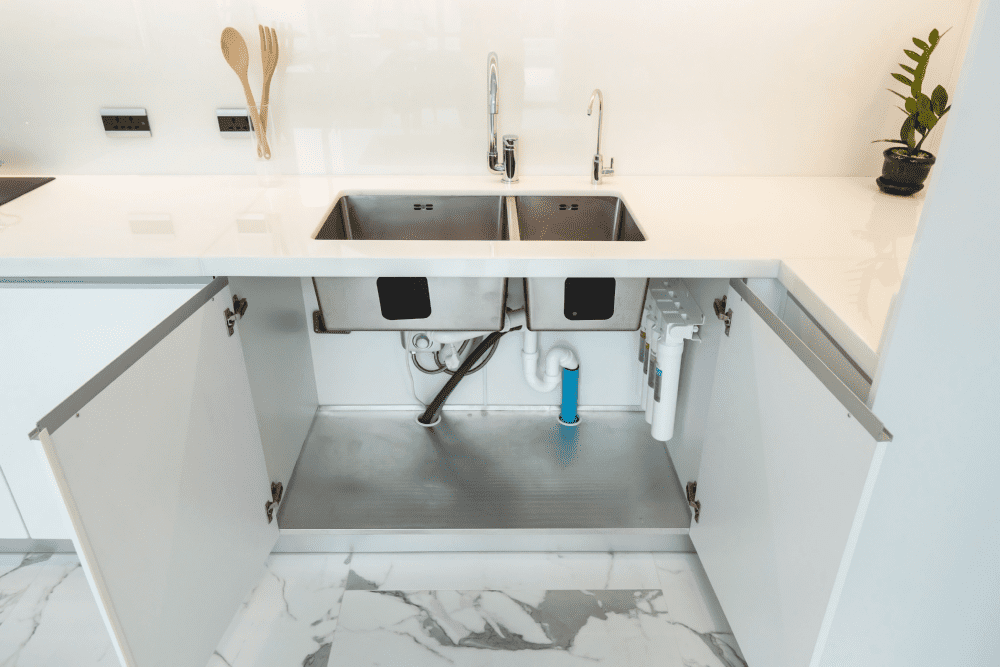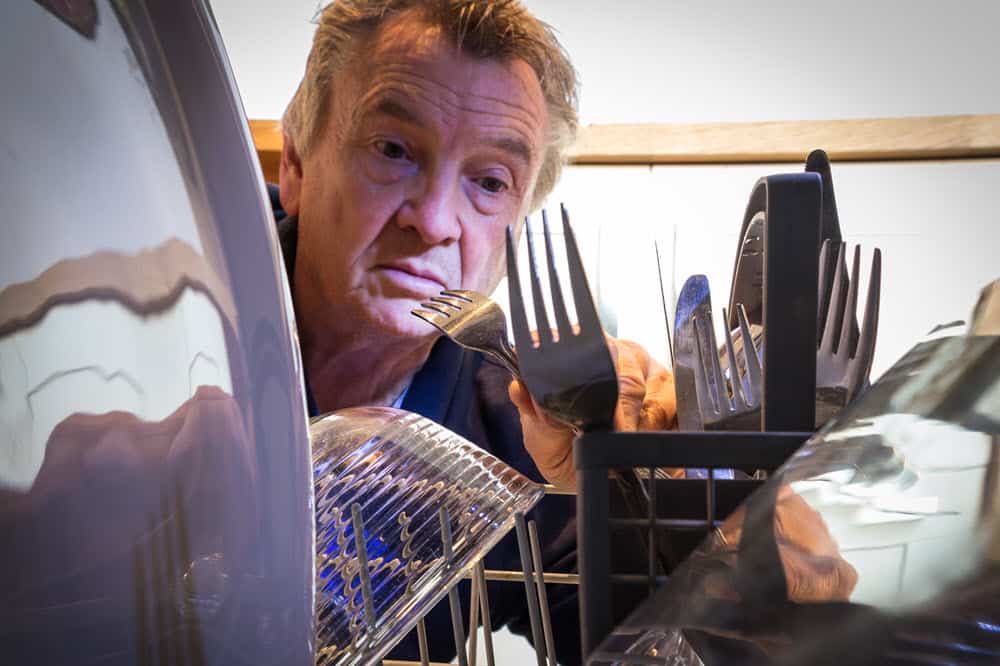A quality dishwasher is one of the most crucial kitchen appliances. They save time and help with the never-ending stream of dirty dishes. There’s nothing like pulling a freshly cleaned set of dishes from a hot dishwasher. But can you hook up a dishwasher to cold water?
To have your dishwasher working well, it needs hot water to remove the worst food debris and grime. Yet it’s not always clear how dishwashers get this hot water. Does it need a supply of hot water? Can it heat the water on its own?
Thankfully, you can put your mind at ease. We have done the research for you, discovered what the experts from top brands recommend, and are ready to share the information. After reading, you will know everything you need about can you hook up the dishwasher to cold water.
Here are the key topics covered:
Follow the instructions to have appliances working their best. The engineering teams who created the products already did the work. They figured out how to get the most out of the appliances. It’s up to you to follow their lead.
When dishwashers aren’t working well, it disrupts daily life. Dishes have leftover food stains and grime, forcing you to run another load. Or even worse, bust out the sponge, soap, and elbow grease.

A dishwasher requires hot water to clean properly
To have your dishwasher cleaning at its best, it needs to use hot water. Even the best dishwashers have trouble getting rid of burnt residue and grease from dishes without hot water. It helps cut through the worst caked-on debris. And hot water kills germs and bacteria.
But there’s a secret that your dishwasher might be hiding. It might not need to rely on the hot water that the rest of your house uses. Many dishwashers heat water on their own. Let’s dive a little deeper into the inner workings of dishwashers to find out how they are designed.
Without thinking about it, you might believe that dishwashers always get their hot water from the water heater of the house or building. After all, that’s how almost every shower, sink, and faucet in most houses work. Even clothes washing machines depend on the central hot water supply.
But dishwashers can fall into a different class. Some contain a water heating element. They can create hot water inside of the unit and don’t depend on an incoming hot water line. Those don’t need a water heater connection.
This isn’t true for every dishwasher. Some work best with cold water and some work best with hot water.
Some of the latest dishwashers recommend using cold water as the only input. They use ultra-efficient methods to heat the water used for cleaning the dishes. A small heat pump can supply all of the hot water a dishwasher needs at the fraction of the energy.
If you have a Bosch dishwasher, then be sure to check your manual. Their recent models use a heat pump like this. Most of them specify that using cold water is the preferred solution. They will still get your dishes sparkling clean, but save you money and energy by heating within the dishwasher.
Samsung dishwashers are similar. They not only recommend using cold water, but also you can void your warranty by connecting it to a hot water supply. These efficient designs are best using only a cold water supply.
In many kitchens, you can find another type of heating element inside the dishwasher. It rests at the bottom of the dishwasher’s interior. You might have thought this helps dry, but it also serves a secondary (more like primary) function.
The heating elements found in most dishwashers also help regulate the temperature of the water used to wash dishes. It combines a thermometer and heating elements to make sure that water is hot enough to wash dishes and sanitize them.
Here is the catch. Some of these heating elements aren’t that efficient. Instead, they rely on the water coming in to already be preheated. They take care of the final stretch and make sure it stays warm throughout the washing cycle.
Sometimes the water supply coming into your dishwasher is best being a hot water line. Some portable dishwashers depend on hot water from another source and can’t create it.
Now we know that some dishwashers use cold water by design. They heat it on their own. These types should only be connected to cold water, as the manufacturer recommends for Bosch dishwashers and Samsung dishwashers.
But others might depend on the water line supplying preheated water. While they work at their best with a hot water supply, there’s not always one available. Can you hook up the dishwasher to cold water?

Unless you have a dishwasher that heats its own water, you’ll need to hook it up to the hot water line which is usually located under your sink
If you don’t have a hot water line available, dishwashers can still function hooked up to cold water. Even those designed to work with hot water will still work using cold water. But it comes at a cost.
Your dishwasher might take longer to reach optimal water temperature if using the cold water supply. It will continue heating the water until it gets warm enough to start the wash cycle. This could cause the dishwasher to take more time, resulting in higher energy bills.
Doing this once or twice won’t have a significant impact. If abused for long periods, the heating element might burn out prematurely. When that happens, you’ll either face an expensive repair bill, need to replace the unit entirely, or will suffer from dishes that don’t reach the level of cleanliness they should.
If you notice that your dishes don’t come out as dry or clean as they used to, your heating element might be failing. If the dishes aren’t hot to the touch right after completing the cycle, this is the case.

Troubleshooting Dishwasher Performance
Your dishwasher also might be taking a lot longer than usual to run. These delays could be caused by the thermometer pausing the cycle to wait for the water to get warm. Pay attention to how long your dishwasher takes to complete a cycle. If it’s significantly longer than before, there might be problems.
Finally, and most importantly, if your dishes aren’t getting clean, it could be that your dishwasher isn’t getting hot water. Without the proper temperature of the water, the dishwasher can have trouble performing at its best.
